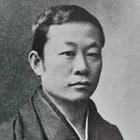
Kōda Rohan, pseudonym of Kōda Shigeyuki, (born Aug. 20, 1867, Edo, Japan—died July 30, 1947, Ichikawa, Chiba Prefecture), Japanese novelist and essayist whose stories of heroic characters balanced the more romantic tendency of his rival, Ozaki Kōyō, in creating a new literature for early modern Japan. Rohan’s early education was strong in the Japanese and Chinese classics, and although he was graduated from a technical school in 1884, before long he had turned to a writing career. “Fūryū Butsu” (1889; “The Elegant Buddha”), a poetic tale of mystic ideal love, brought him fame. Gojū no tō (1891–92; The Pagoda, 1909) deals with the single-minded devotion that enables a simple artisan to accomplish an extraordinary feat. Rohan’s aesthetic world emphasized strong will and the powers of imagination. Sora utsu nami (1903–05; “Waves Dashing against the Sky”), an uncompleted novel, showed a more realistic tendency. Rohan’s interest in history grew through the years, and his last major work, an annotation of the works of the haiku master Matsuo Bashō, was completed the year of his death.





